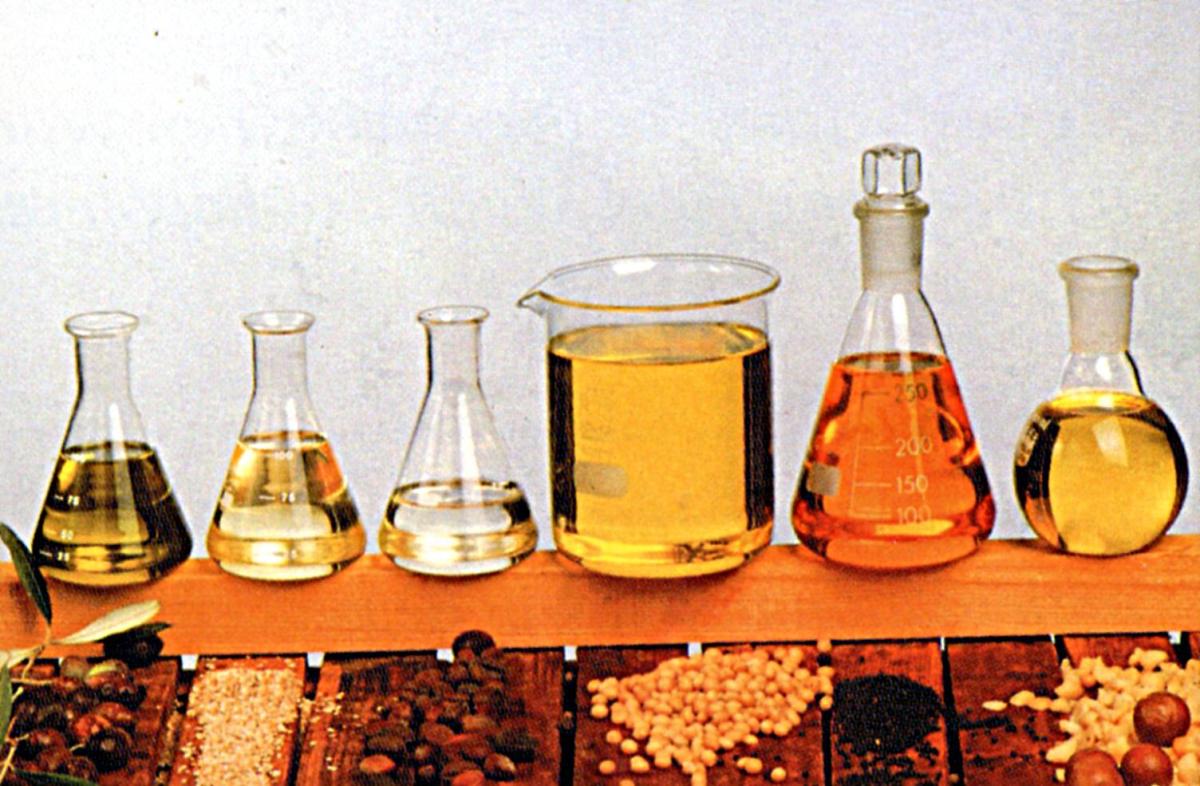
Carrier Oils
What Is Carrier Oil?
Carrier oils are vegetable oils that do not evaporate and are extracted from fatty parts of plants.
Oils can be extracted from the plant by five different methods:
- Cold Pressed
- Expeller Pressed
- Refined
- Partially Refined
- Unrefined
Each of these methods produces a different quality of oil.
Safety: Things to Think About
Always use caution when trying ingredients that are unknown to you. Persons who are allergic to nuts should ask a medical doctor before coming into contact with oils from nuts or other nut products. Read the labels of the products you use on your skin.
Remember, essential oils are extremely concentrated. A very small amount can cause harm--a burn or an allergic reaction. Please use them correctly. Don't apply undiluted essential oils directly to your skin.
Some Recommended Carrier Oils
There are over 50 different carrier oils on the market. When it comes to homemade perfumes or aromatherapy mixtures, the five below are the most often recommended.
Jojoba Oil
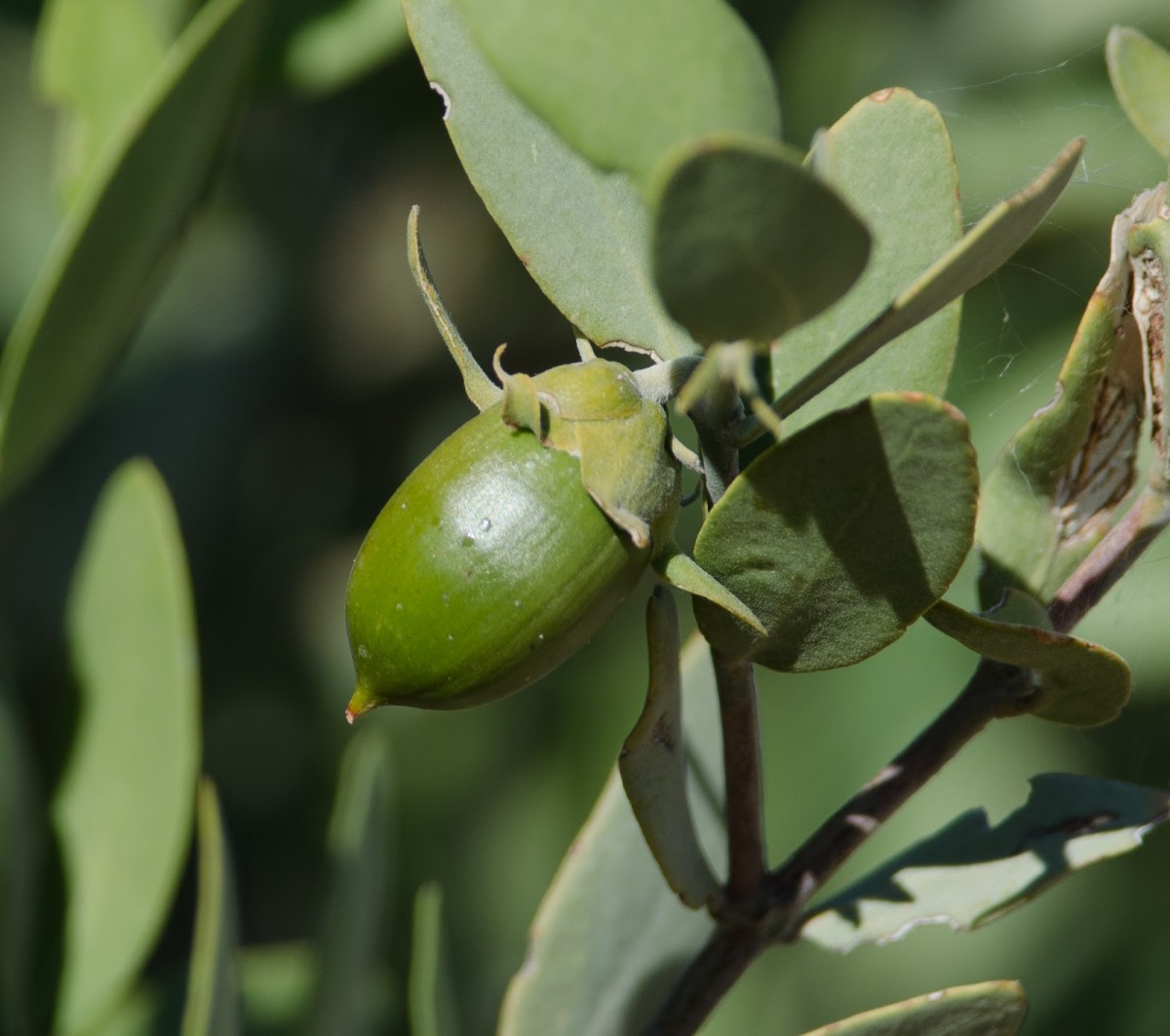
Jojoba nut
The recommended carrier oil for making homemade perfume is Jojoba oil. It moisturizes the skin, being absorbed quickly without leaving any greasy effect. Jojoba oil is odorless and colorless.
Jojoba is a shrub that grows in dry regions of northern Mexico and the southwestern US. The seeds of the jojoba plant incorporate as much as 60% of their weight in oil. The oil is best isolated by cold pressing of the seeds. The raw extract is called "jojoba wax": removing the glycerine leaves jojoba oil.
Jojoba oil has many uses: in moisturizer, hair care products, and anti-aging creams, and for softening cuticles, restoring natural skin oil balance, and removing makeup. It is said to help in acne treatment and prevention.
Jojoba oil mixed with essential oils is perfect for making homemade perfume; it will give any perfume recipe that little extra touch.
Apricot Kernel Oil
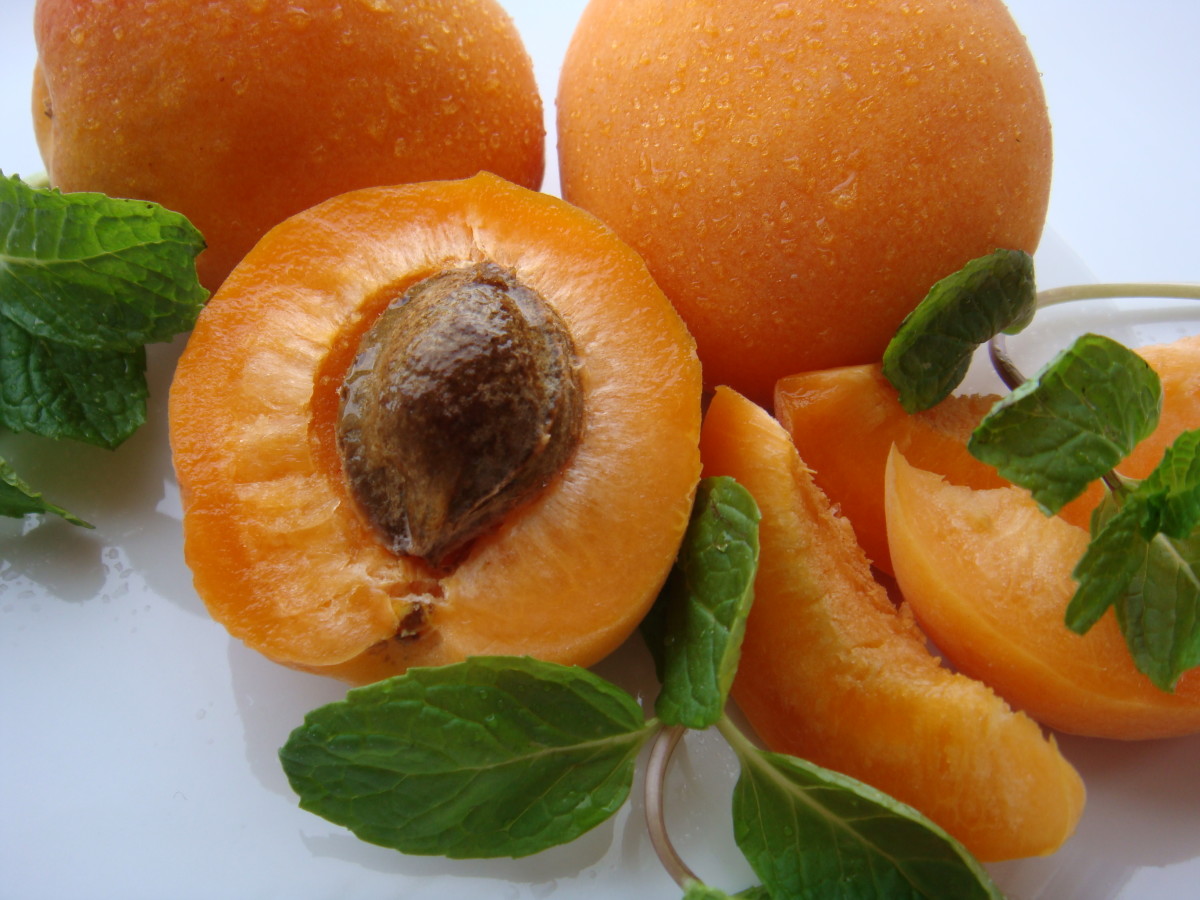
Apricot kernel
Apricot kernel oil, also called apricot oil, is also a good carrier oil use in making homemade perfumes and aromatherapy fragrances.
Apricot kernel oil is fine-textured and absorbed quickly through the skin without leaving an oily residue. It is not odorless, having a faint smell, and it is not colorless; it has a pale yellow color that may stain light-colored clothing. Apricot kernel oil is used in anti-aging formulas and helps with inflammation. It contains vitamins A, C, and E.
Apricot kernel oil comes from the fruit of the apricot tree, a small tree about 8-12 m tall. Turkey is the largest leading apricot producer in the world followed by Iran and Uzbekistan. In the US, apricots are grown in California, Washington, and Utah. The dry seed of the apricot is cold pressed to yield the oil.
Almond Oil
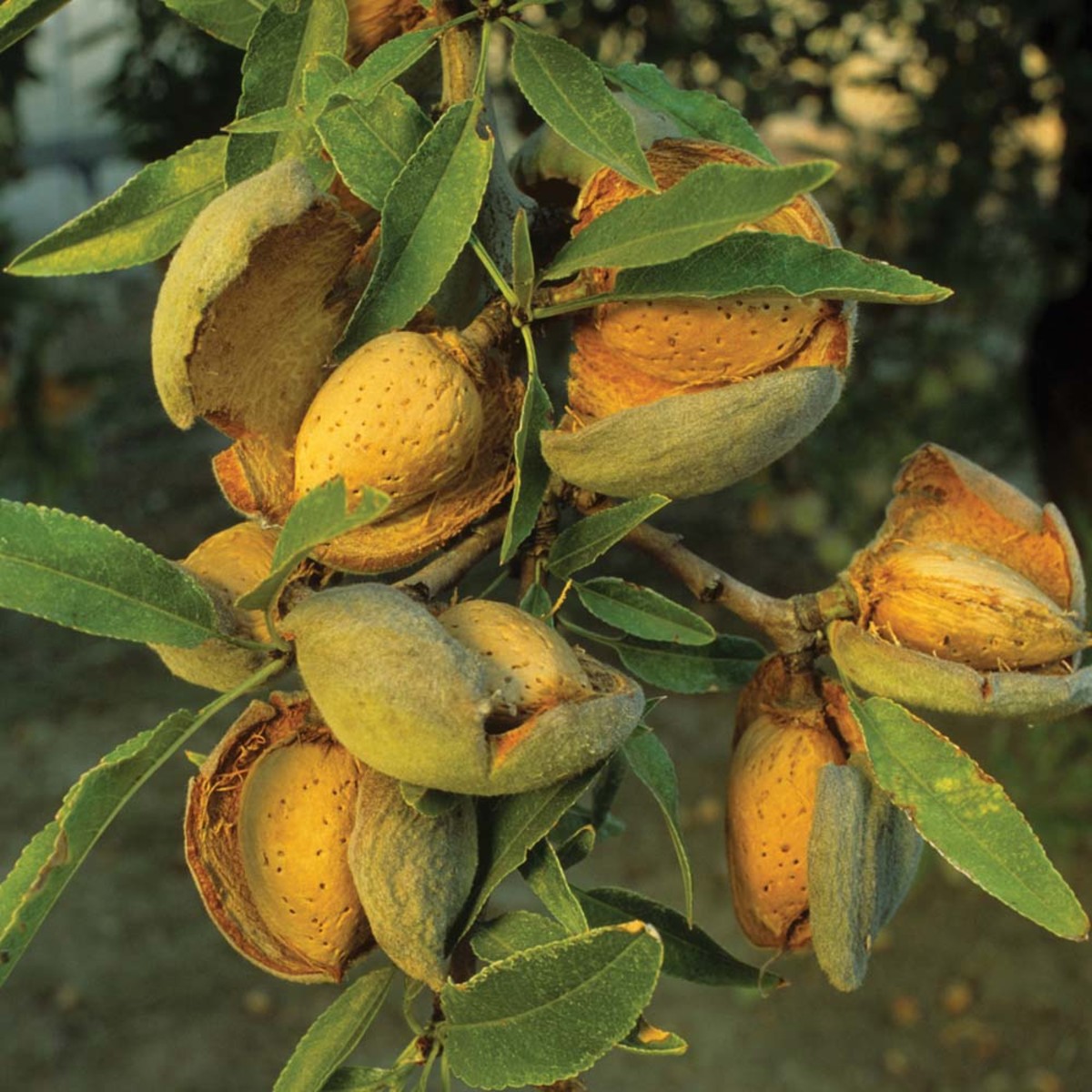
Almonds
Almond oil is another great carrier oil for homemade perfume and aromatherapy recipes. Almond oil effectively delays aging processes, and helps lighten dark skin. Almond oil reduces inflammation, irritation, and skin rashes. It soothes sore and itchy skin and is a good moisturizer for chapped and dry lips. Almond oil contains Vitamin E, Vitamin D, and minerals like calcium and magnesium.
The almond tree is native to the Middle East and South Asia. The US, Spain, and Iran are the largest producers of almonds.
Avocado Oil
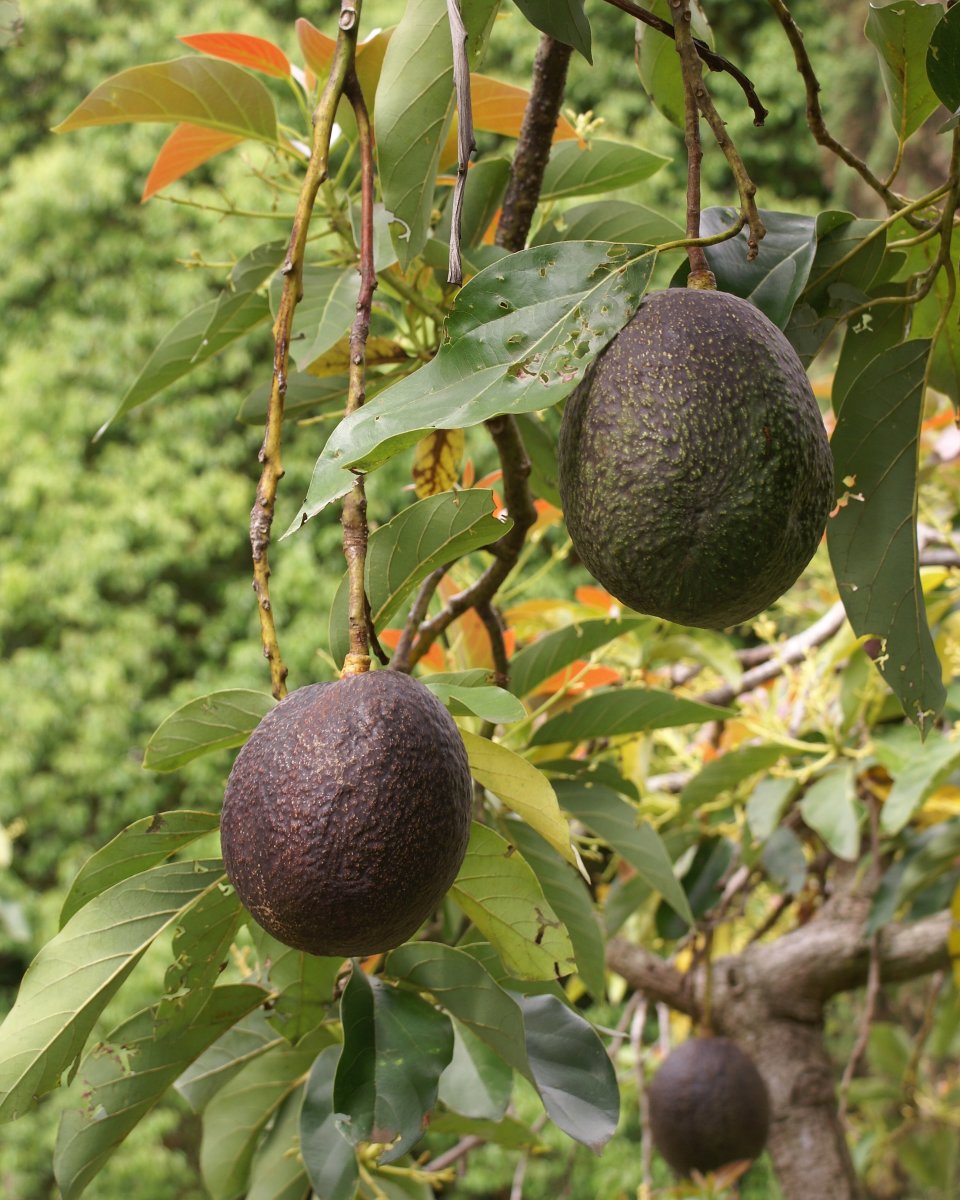
Avocados
Avocado oil is another great carrier oil for homemade perfume and aromatherapy recipes. It is rich in vitamins A, D, and E, maintaining healthy skin and helping to relieve eczema. Avocado oil decreases the effects of aging and is an ideal moisturizer and skin care agent.
The avocado is the fruit of a tree native to Mexico and Central America. Mexico, Chile and the Dominican Republic are the biggest producers of avocados.
Coconut Oil
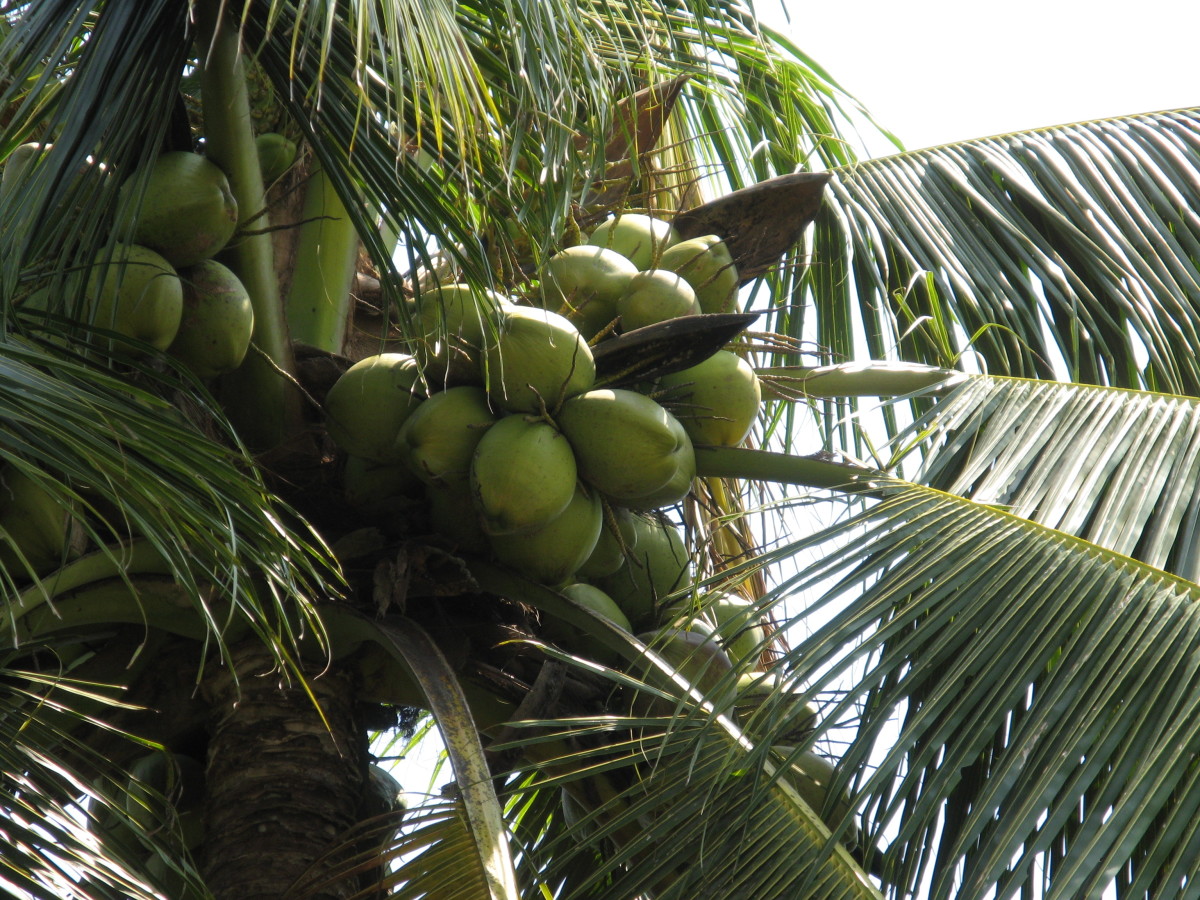
Coconuts
Coconut oil is another good carrier oil for homemade perfume and aromatherapy mixtures. It contains fatty acids like lauric acid, caprylic acid, and capric acid. It also has Vitamin E. Coconut oil is commonly used to treat skin and nails because the fatty acids it contains are anti-fungal, anti-oxidizing, and anti-bacterial. The coconut palm is found in tropical and subtropical areas of the world. The Philippines, Indonesia, and India are the world's largest producers of coconuts.
When making homemade perfume and aromatherapy mixtures, the best way to dilute essential oils is by mixing them with a carrier oil. Aromatherapy massage mixtures use this dilution method.
- 1% dilution: 5-6 drops essential oil per ounce of carrier oil
- 2% dilution: 7-14 drops essential oil per ounce of carrier oil
- 3% dilution: 15-18 drops essential oil per ounce of carrier oil
Equivalents for Measuring Oils
100 drops
|
1 tsp
|
5ml
|
1/6 ounce
|
|---|---|---|---|
200 drops
|
2 tsp
|
10ml
|
1/3 ounce
|
300 drops
|
3 tsp
|
15ml
|
1/2 ounce
|
400 drops
|
4 tsp
|
20ml
|
2/3 ounce
|
500 drops
|
5 tsp
|
25ml
|
5/6 ounce
|
600 drops
|
6 tsp
|
30ml
|
1 ounce
|
Essential Oil Measurement Equivalents
Below is a simple homemade perfume or aromatherapy oil recipe that you can use. It has a nice lavender base with a touch of vanilla for sweetness.
Try using different carrier oils to see which ones you like the most.
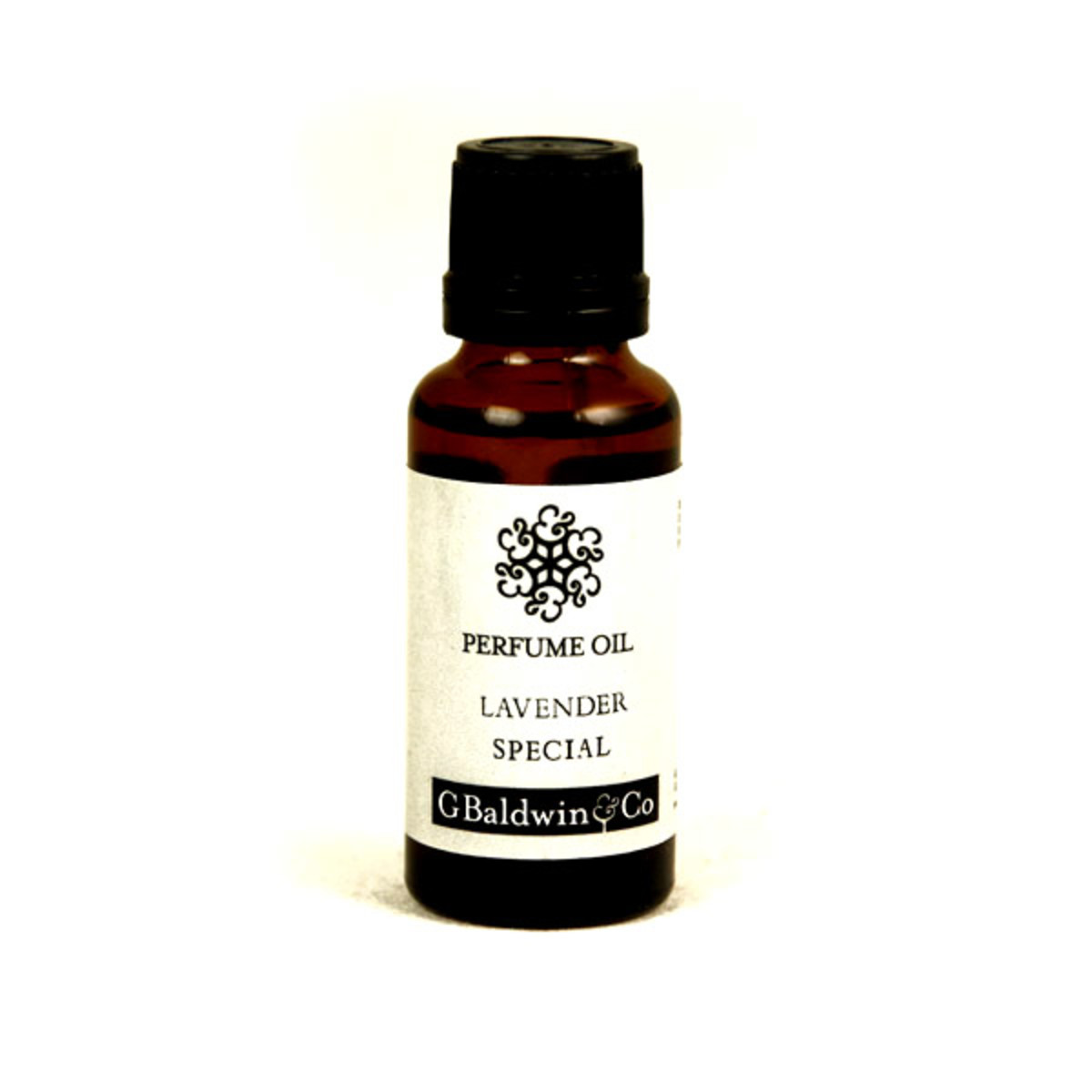
Lavender essential oil
Sweet Lavender Perfume
- 1 ounce carrier oil, water, or alcohol
- 5 drops lavender essential oil
- 1 drop vanilla essential oil
Try Different Oils
As you can see there are several benefits to each of these carrier oils, from skin moisturizing to eczema relief. Most have vitamins and minerals in them that help revitalize the skin. When you make aromatherapy mixtures, experiment to find which carrier oils you like the most. And remember you can replace carrier oil with water or alcohol in homemade perfume recipes.





